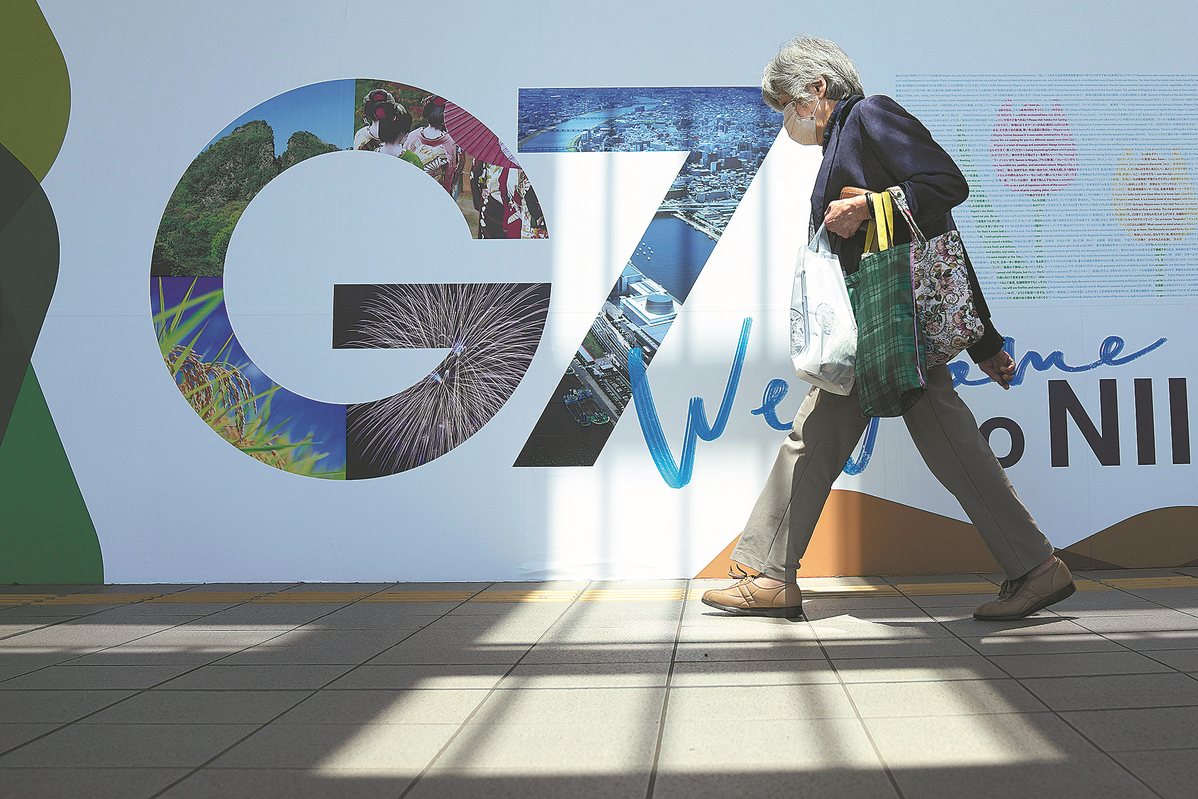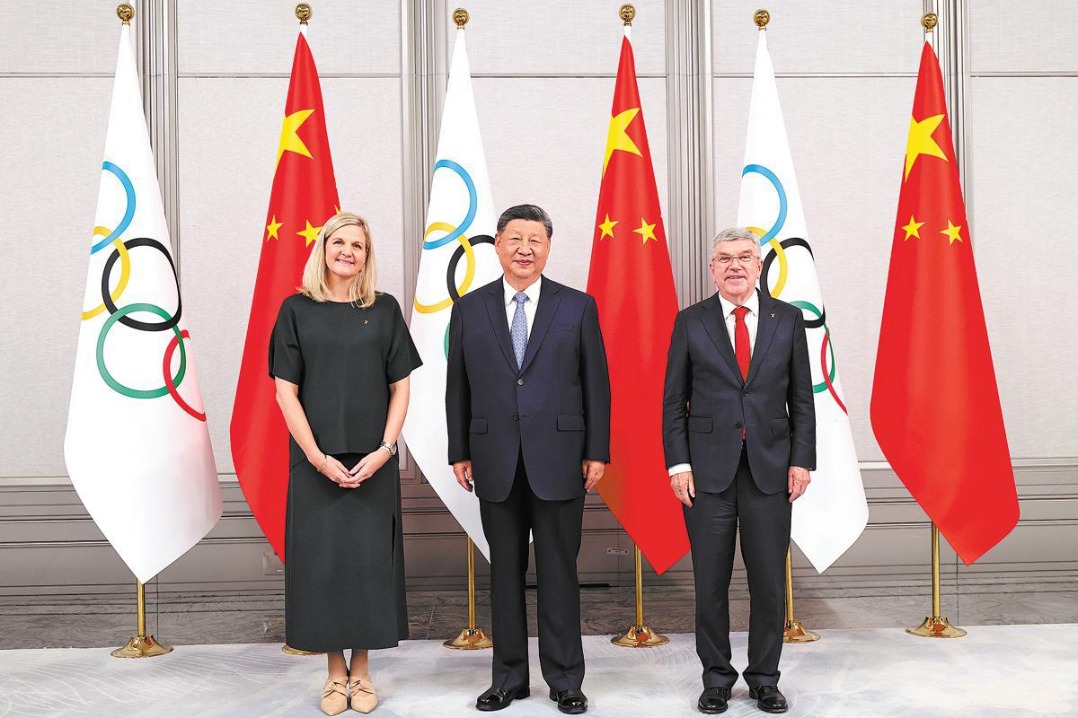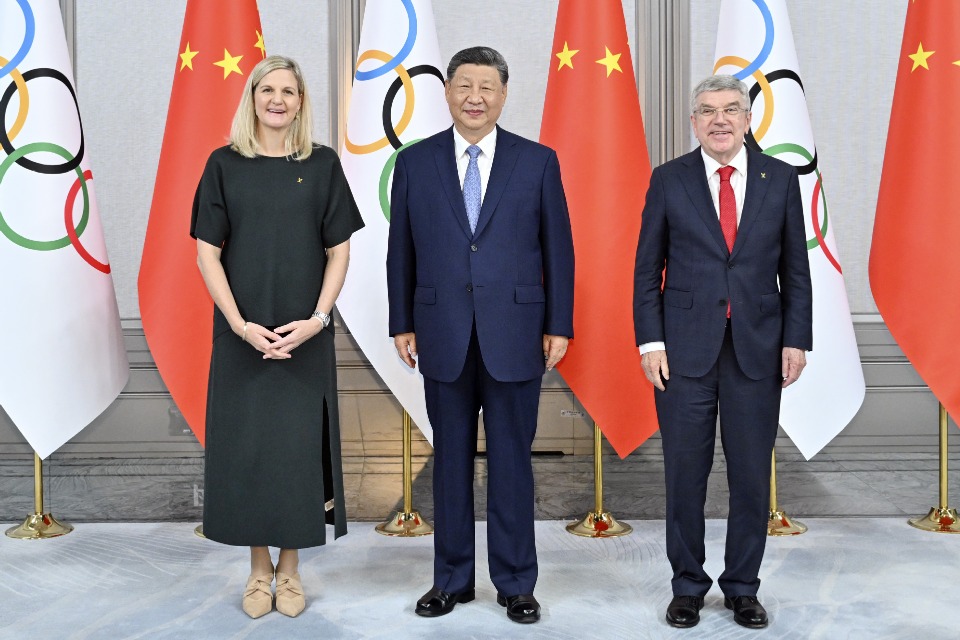Don't pin hopes on G7 Summit


The Group of Seven (G7), a collection of the world's most industrialized countries, asserts to share the fundamental values of freedom, democracy and human rights as well as claims to have jointly responded to global challenges. However, when one analyzes the group through a critical lens, they will see that, in fact, it's a selective group of white-majority, wealthy states that pursues their own interests and dominance on the rest of the world.
It has its roots in the 1973 Arab-Israeli war when the Mideast countries slapped an oil embargo on the United States of America in response to US President Richard Nixon's $2.2 billion in military assistance to Israel. Two years later, G7 (then Group of Six) emerged on the world scene as "a sort of coup" to take control of the world energy market and "counterattack" against the southern countries seeking liberation from the Western-dominated global economy and demanding a fairer share in international income. Even as the embargo was extended to the Netherlands, Portugal and South Africa, they were not part of the alliance of the richest.
Not once has the G7 possessed a common vision to cope with the global challenges and, over the years, it has become an instrument to advance nationalistic interests and protectionist policies. As a result of the group's theatrical comedy characteristics and improvised dialogue, it has been described as the renaissance of the "commedia dell'arte".
The 2018 "G6 plus one" summit ended in disarray when the former US President Donald Trump reached Charlevoix to straighten unfair trade deals with his allies and left the venue without endorsing the final communiqué over differences on tariffs, climate change, America's unilateral withdrawal from a multi-nation Iran nuclear deal and Russia's readmission to the G7.
Members agreed on a joint statement including trade protectionism and cutting trade barriers; divisions in the alliance were visible. Observers in Europe argued that the group lacked relevance without China and other emerging powers and saw "a mere vindication" of the long-held view the G7 had no reason to exist, calling on a need to replace it with a more significant Group of Twenty (G20).
After the Biarritz Summit next year, the event again was a moment when the US had "definitively" lost its role as the leader of the industrialized nations and was undermining the global economy, multilateralism, campaign against climate change and other global challenges. "Inertia" and "disunity" rediscovered the G-group was deeply fragmented and lacked the capacity to deliver a solution to crucial international issues.
Following the cancellation of the 2020 G7 Summit due to the pandemic, scheduled at Camp David, US President Joe Biden at Cornwall in 2021 led an effort to unite the G7 members in dividing the world on ideological, political and economic grounds. At a time of a raging Covid-19 crisis, the joint communiqué sought to impose its "shared agenda and democratic values" on the rest of the world and promised to "develop a new partnership to build back better for the world" to rival the Belt and Road Initiative (BRI).
In the middle of a raging Covid-19 pandemic, this posture hid cold war overtones and threatened the global fight against the virus and efforts to protect the embattled nations from Covid-19's economic fallouts as the leaders again disagreed on several issues including producing electric power to rein in global warming and committing billions to counter China's global development, investment and lending initiatives.
Before the summit, the instance was being taken by the G7 as an opportunity to "show" and "advance" its democratic values to the world. With that in mind, the club of world's richest announced one billion vaccines to be delivered to poorer countries by the end of 2022, only after they had stockpiled enough shots to inoculate each of their citizens three times over as more than 130 other countries hadn't received a single dose.
Joe declared the gathering was "extraordinarily collaborative and productive" and America had reestablished some of its "credibility" among allies; the "inadequate" climate change and vaccination targets urged the watchers and former British Prime Minister Gordon Brown to label the meeting as a "pointless exercise," "selfie summit" and an "unforgivable moral failure".
With European peace in shambles once the pandemic smashed the continental economy, the US president came out swinging in Elmau for the 2022 G7 Summit to take advantage of the Ukraine war and intensify cold war with Beijing. Prior to the summit, the White House claimed the crisis in Europe had firmed up the "democratic world" against Russia and China, promising Chinese alleged unfair economic practices to be "featured prominently" in the discussions. Biden's National Security Adviser Jake Sullivan also vowed to provide an "alternative" to the BRI.
Here again, Biden looked to exploit the peace crisis on the European shores and focused on raising Europe's dependence on the US. The Build Back Better World initiative was rebranded as the Partnership for Global Infrastructure and Investment, which pledged to mobilize $600 billion by 2027 and attempted to win back influence in the developing world.
The joint communiqué marked accused China of distorting the global economy, sought Beijing to contribute to international security, recalled the importance of upholding the principle of the UN Charter, and urged non-Paris Club countries and private creditors to help low-income countries, facing debt sustainability challenges. It boasted of delivering 1.175 billion vaccine doses to the world but put the onus of debt restructuring on the G20, an acknowledgement of the G7 eminence in global affairs.
Needless to say, most of the G7 members as part of the US-led NATO have time after time violated the UN Charter and are responsible for bringing chaos to the developing world through their participation in America's wars. The crux of the matter is they propagate their values to the developing countries to score political points but have never really taken concrete steps to help them strengthen their security and counter health and debt challenges, obstructing their development.
An analysis ahead of last year's G7 summit dismantled the group's assertion of delivering vaccines to the developing world, placing the blame of 600,000 deaths (one every minute) in low- and middle-income countries on the "worst offenders" (Canada and the UK) as well as on the US and "Team Europe," each of whom had "betrayed" the poor countries by hoarding the vaccines, failing to meet their commitments and sending their leftovers.
The Oxfam International's report on the eve of the recent G7 summit in Hiroshima said the wealthy countries owe low- and middle-income countries $13.3 trillion in unpaid aid and funding for climate action. Instead of giving a timeline of extending the financial assistance to their former colonies, they are pressuring the global south to pay back $232 million a day in debt repayments through 2028.
This exposes the coalition's "deadly double standards" to confront the debt and climate challenges, as well as debunks their commitment to pull poor countries – struggling to spend on healthcare, education, gender equality, social protection and battle out climate change – back from the brink. This year's G7 summit would pay similar attention to global challenges such as climate change, health and development, yet real focus will be given to the group's economic resilience, Ukraine and the Indo-Pacific; debt crisis in developing countries is nowhere on the agenda.
America, which has a history of coercing other economies such as Iran, Syria and the European Union, would like to reform the G7 into an economic version of NATO to counter what the US alleges Beijing's "economic coercion" but not all countries are well-aligned in alienating their powerful trade partner - China. The wealthiest-only coalition is more plagued by internal differences than ever. For instance, Europe's overreliance on the US for energy and security has become devoid of a common vision as each of its member states pursue its own interests. There is nothing in it for the developing countries except for too much talk about helping them without actually strengthening their efforts to thwart overwhelming debt, economic and climate change challenges.
Azhar Azam is a private professional and writes on geopolitical issues and regional conflicts.
The opinions expressed here are those of the writer and do not necessarily represent the views of China Daily and China Daily website.
If you have a specific expertise, or would like to share your thought about our stories, then send us your writings at opinion@chinadaily.com.cn, and comment@chinadaily.com.cn.


































